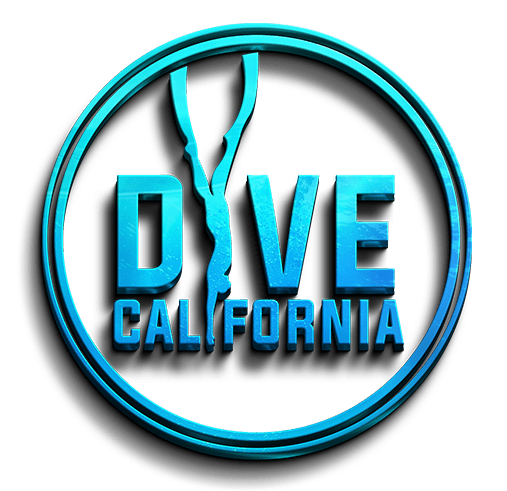PADI Advanced Open Water Course
Exploration. Excitement. Experiences.
The Advanced Open Water Diver course is all about advancing and refining your skills.
You can enroll immediately after earning your PADI Open Water Diver certification, although we do recommend that you have minimum of 15 logged dives under your belt. This course will help you build confidence in navigation, fine-tune your buoyancy skills, and introduce you to new diving activities such as deep diving, night diving, fish identification, search & recovery or underwater imaging.
After completing your PADI eLearning, you’re ready to venture out for five Adventure Dives with your Instructor: a buoyancy dive, navigation dive, deep dive, night dive and one additional Adventure dive of your choice. There’s no exam because this course is truly about having fun and gaining experience.
For every specialty dive you complete, you can earn credit toward PADI® specialty certifications.
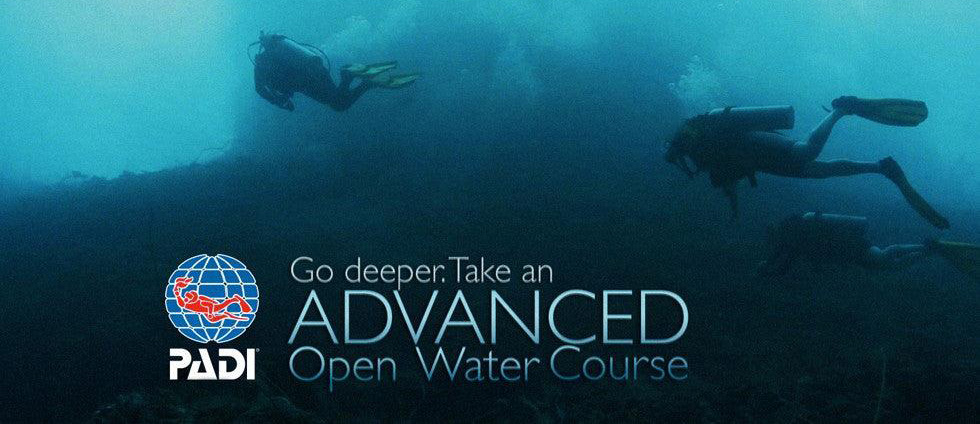
Course Information
What’s Included:
- Private Instruction
- Scuba Equipment (including SMB, Whistle, Compass, Chemical Light Stick, Primary & Secondary Dive Light)
- Free use of dive computer (plays a big role in the advanced course)
- Underwater camera for photography / videography dives
- PADI certification fee
- (5) Adventure training dives with instructor
- (2) days of supervised shore/beach diving
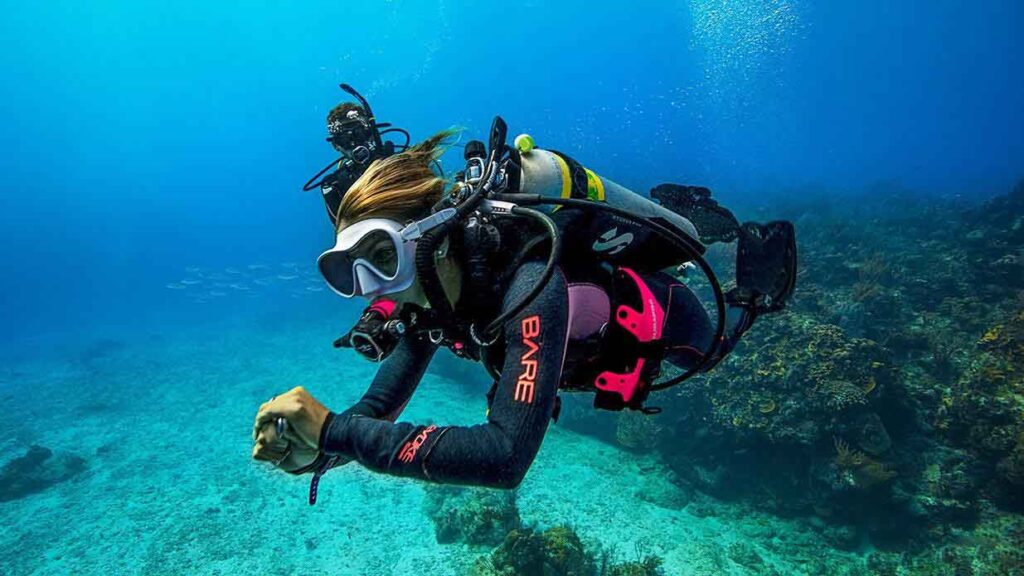
Course Prerequisites:
- Due to the more challenging Southern California water conditions, we only accept ages 15 and up.
- Successful completion of PADI Open Water Diver, Jr. Open Water Diver, or another entry-level course.
- 15 logged open water dives are recommended.
- Must be capable of doing 3 dives in a 24-hour period.
- Recent diving experience (we highly recommend completing a scuba review if you have not dived for 12 months)
- Medically fit to dive, download and review the Diver Medical form to ensure you won’t need a physician’s approval to dive before enrolling in a scuba course.
- If you (or your physician) have questions about medical fitness to dive, contact the experts at Divers Alert Network (DAN).
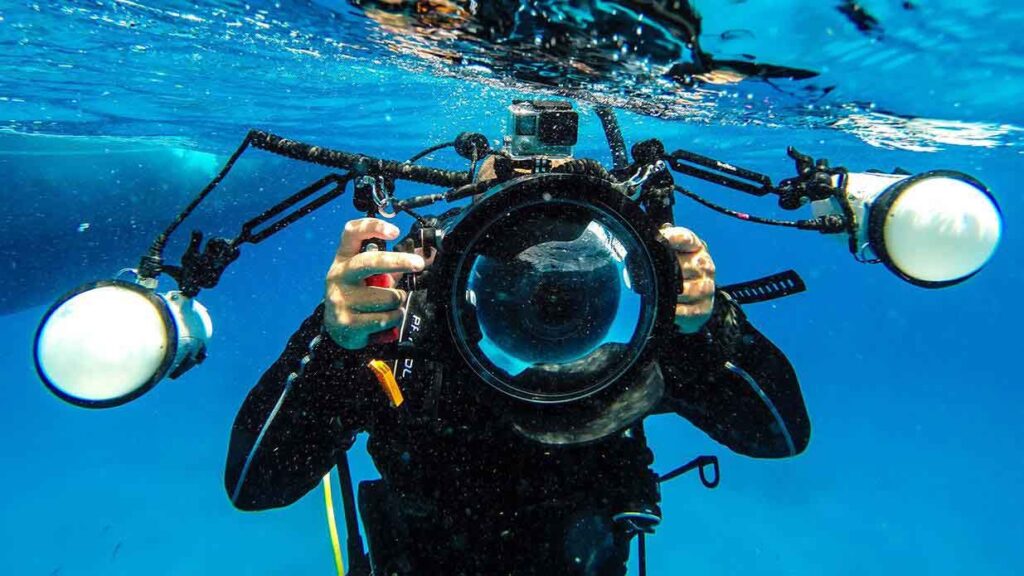
What’s NOT Included:
- PADI eLearning $231 (does not include course tuition)
- Underwater Slate
Course Fee:
- Private one-on-one course fee $695 (does not include PADI eLearning)
- Semi-Private (maximum 2 students) course fee $495 per person (does not include PADI eLearning $231), great for couples, family members or good friends.
To serve our clients better and offer quality in-depth scuba training, we ONLY offer Private one-on-one, and Semi-Private (max 2 students) scuba instruction. This way, we can create a more comfortable and confident scuba diver and ensure each student has complete understanding of all concepts as well as mastering the necessary skills as an Advanced Diver.
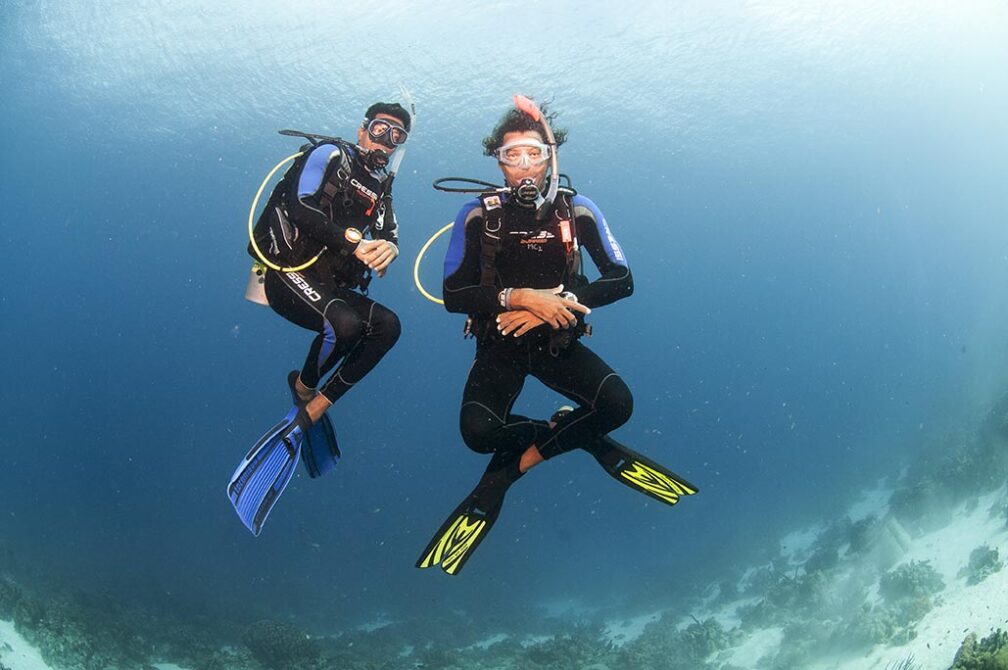
Day 1
We’ll start with an orientation of the upcoming dives. Then we’ll get started with 2 morning dives:
- Peak Performance Buoyancy
- Navigation
- Night Dive
Later, we’ll do a Night Dive at La Jolla canyon in the late afternoon, right after sunset.
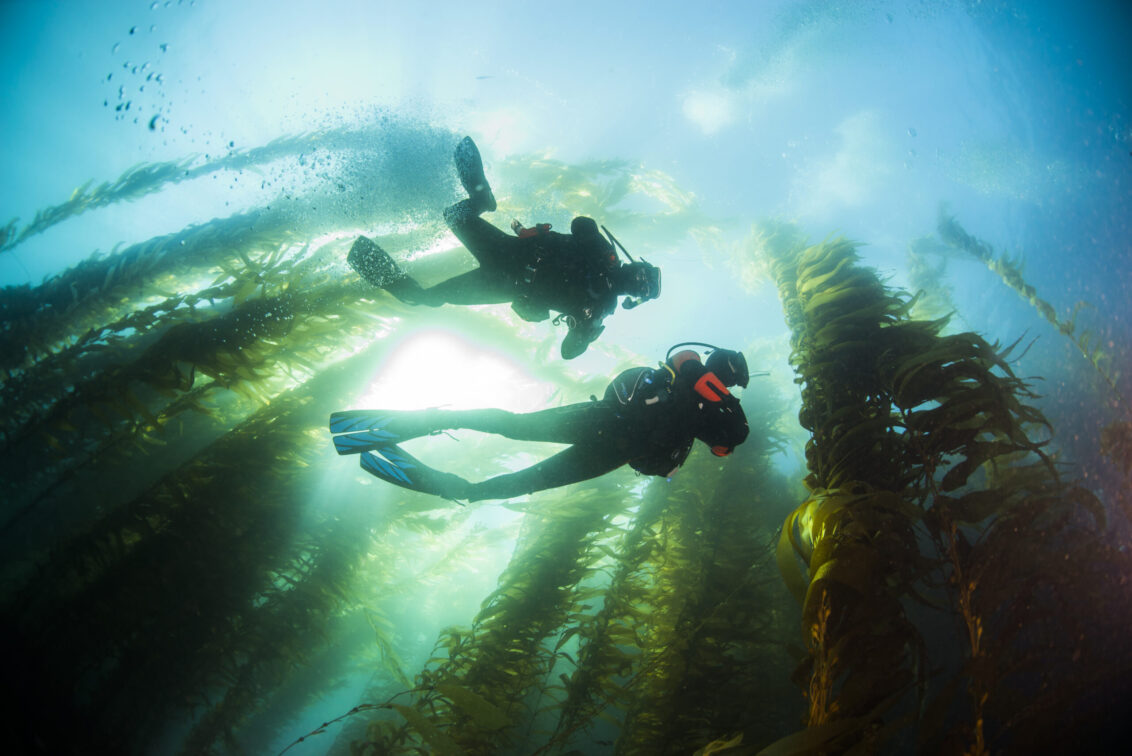
Day 2
We’ll do 2 morning dives:
4. Deep Dive (with a maximum depth to a minimum of 62 feet and maximum of 30 meters/100 feet)
5. Dive of Your Choice (Search & Recovery, Fish Identification, Underwater Naturalist, UW Digital Photography, Delayed Surface Marker Buoy (DSMB), Enriched Air Nitrox — add $15 for Nitrox fills)
Your first 3 dives are conducted at La Jolla Shores with access to the La Jolla Canyon, perfect for navigation, deep and night diving. The remaining 2 dives are conducted at La Jolla Cove, where you can dive in the Kelp Bed, with California Sea Lions, and other varieties of marine life including harmless sharks. Check out our website blogs for more information on the Kelp Beds, California Sea Lions and Horn Sharks of La Jolla.
Required PADI Materials
Independent Study – PADI eLearning $231
This course requires both knowledge development and in-water training for certification. When you purchase a PADI eLearning course, the cost covers the knowledge development portion only, not the course tuition. You will purchase the eLearning materials directly from the PADI website. Order PADI eLearning and start your “Home Study” today. Advanced Open Water Diver candidates are required to complete all the Knowledge Reviews pertaining to the dives selected prior to arriving for the course.

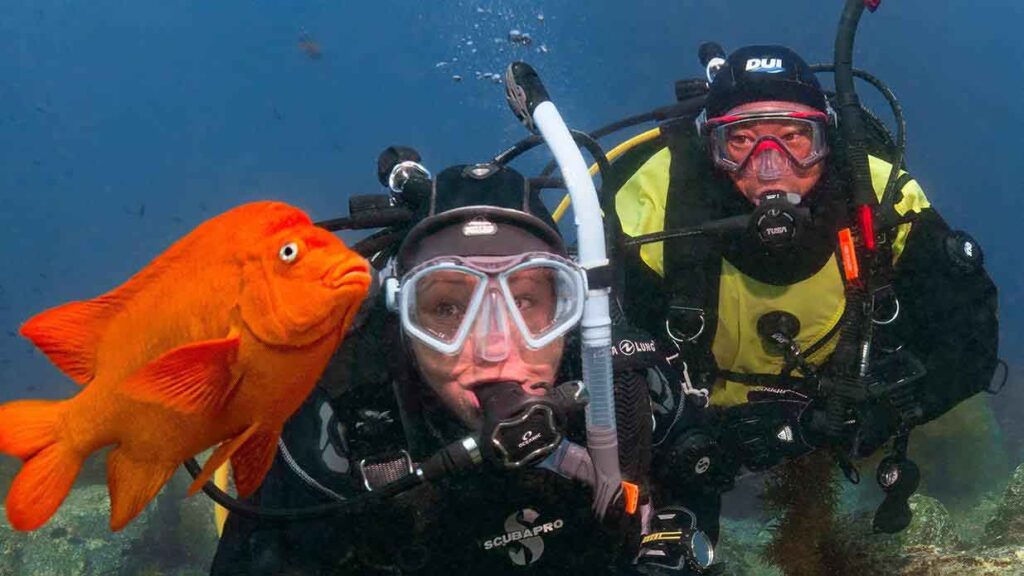
FAQs
The answer depends on your age, local regulations, and dive site depths.
- The maximum depth for divers 15 or older is 30 meters/100 feet
- For divers 12-15 years old, the maximum depth is 21 meters/70 feet
The depths listed above are the maximum depth, your dive may be shallower. A deep dive is considered anything below 18 meters/60 feet. Put another way, a dive to just 19 meters/62 feet qualifies as a deep dive.
Each specialty dive may be credited toward the related specialty certification. For example, if you try a Digital Underwater Imaging dive during your Advanced Open Water Diver course and like it, you’ll already have one of the two dives required for the PADI Digital Underwater Imaging certification.
Yes, at Dive California all necessary equipment is included in your course fee: compass, dive computer, underwater camera, dive lights, etc.
5 Adventure dives to complete the PADI Advanced Open Water certification.
For sure! Taking the Advanced Open Water course in San Diego is very popular as you get to experience some of the amazing marine life you can only find in the La Jolla marine environment, such as the California Sea Lions, Horn sharks, the La Jolla Kelp and many others.
- 72 Hour Cancellation Policy strictly enforced, NO exceptions.
- Less than 7 days’ notice, prior to start of the course, you may move into another course slot with a 50% administration fee of the total course cost.
- No refunds are issued if the cancellation notification is received less than 72 hours from the start of the course, or for no-shows.
- No refunds will be issued for any PADI digital eLearning Materials, used or unused.
- A full refund is given if the course is cancelled/rescheduled 72 hours prior to the dive date or if the course is cancelled by the instructor due to unforeseen events, adverse weather/ocean condition or unsafe diving conditions.
